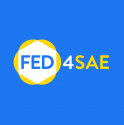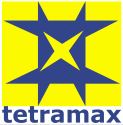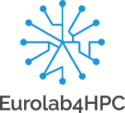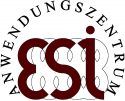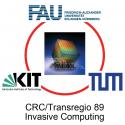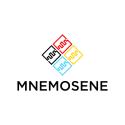6.8 TETRAMAX: Smart funding for digitalization of Europe's Industry
Date: Wednesday 27 March 2019
Time: 11:00 - 12:30
Location / Room: Exhibition Theatre
Organisers:
Luca Fanucci, University of Pisa, IT
Bernd Janson, ZENIT GmbH, DE
Moderator:
Luca Fanucci, University of Pisa, IT
One of the most demanding challenge for Europe's Industry is to implement information technologies. Besides technical problems during the installation and replacement of analogue processes, digitalization touches the whole process of interaction and exchange in and outside companies. Threats like hacks with misuse of personal data, system blackouts or lack of qualified IT experts are heavily discussed and prevent many players, especially smaller SMEs, from fostering digitalization so far. But even if all those problems will be solved the question about the contribution of digitalization to CO2 reduction and lower energy consumption is still remaining. New promising innovations like blockchain technologies seem to completely fail at least from the energy saving point of view. To receive solutions for all aspects of digitalization with focus on Cyber Physical Systems (CPS) and via the instrument of Digital Innovation Hubs (DIH) the European Commission started its Smart Anything Everywhere (SAE) Initiative to foster transfer from research to business. The Horizon 2020 Innovation Action TETRAMAX is one of them offering smart and individual funding schemes for European university-industry cooperation. The technology transfer concept focuses on direct cooperation - Technology Transfer Experiments (TTX) - between universities and SMEs supported by open innovation networks and other stakeholders like investors. The session speakers will demonstrate in a pragmatic way and by use of concrete examples how technology transfer can be initiated and implemented in practice and to overcome the associated pitfalls and use the innovation opportunities. Amongst others, the goal is to motivate more stakeholders to engage in international technology transfer and become part of TETRAMAX.
During the session, TETRAMAX representatives will share their experiences and insights as researcher, founder, entrepreneur, investor or consultant.
| Time | Label | Presentation Title Authors |
|---|---|---|
| 11:00 | 6.8.1 | PRESENTATION OF TETRAMAX Speaker: Rainer Leupers, RWTH Aachen, DE Abstract TETRAMAX as part of the SAE Initiative started in 2017 and is funded by Horizon 2020. The project supports application experiments between academia and industry (SMEs) related to Internet of Things (IoT) technologies and focusing on customized low energy computing (CLEC). The project builds on three major activity lines: (1) Stimulating, organizing, co-funding, and evaluating different types of cross-border Application Experiments, providing "EU added value" via innovative CLEC technologies to first-time users and broad markets in European ICT-related industries, (2) Building and leveraging a new European CLEC competence center network, offering technology brokerage, one-stop shop assistance and CLEC training to SMEs and mid-caps, and with a clear evolution path towards new regional digital innovation hubs where needed, and (3) Paving the way towards self-sustainability based on pragmatic and customized long-term business plans The project impact will be measured based on 50+ performance indicators. The immediate ambition of TETRAMAX within its duration is to support 50+ industry clients and 3rd parties in the entire EU with innovative technologies, leading to an estimated revenue increase of 25 Mio. € based on 50+ new or improved CLEC-based products, 10+ entirely new businesses/SMEs initiated, as well as 30+ new permanent jobs and significant cost and energy savings in product manufacturing. Moreover, in the long term, TETRAMAX will be the trailblazer towards a reinforced, profitable, and sustainable ecosystem infrastructure, providing CLEC competence, services and a continuous innovation stream at European scale, yet with strong regional presence as favoured by SMEs. |
| 11:15 | 6.8.2 | EVERMORE Speaker: Davide Rossi, Università di Bologna, IT Abstract EVErMORE: Energy-efficient Variation awarE MulticORE: EVErMORE TTX experiment aims at developing the next generation [GAP-8 IoT processor from GreenWaves Technologies](https://greenwaves-technologies.com/en/gap8-the-internet-of-things-iot-a...). Exploiting the adaptive management architecture for process and temperature compensation developed at University of Bologna, coupled to the low-voltage capabilities of 22nm FD-SOI technology, is expected to improve the energy efficiency of current generation GreenWaves Technology processors by 6x, enabling new applications and opening new market opportunities. |
| 11:30 | 6.8.3 | CARROTS Speaker: Antonio Solinas, Lifely, IT Abstract Carrots: Cooperative ARchitecture for gaRdening with Open moniToring Systems: Tomappo is a digital gardening assistant enabling anyone to grow their own vegetables. Within Carrots, Lifely's social sensors will be customized for use with Tomappo. This will add new dimension to Tomappo leading to a better product for users and new revenue stream for company receiving technology, while also benefit the owner of the technology by providing a new use-case for their sensors. |
| 11:45 | 6.8.4 | TETRAWIN Speaker: Neven Rusković, Spica Sustativi d.o.o., HR Abstract TETRaWIN: TEchnology Transfer of computational-Rfid Wirelessly-powered IoT Nodes: This TTX will transfer the University of Salento recognized skills on wirelessly-powered Computational-RFID technology for IoT to the SME Spica, by defining a new cost-effective battery-less CLEC-based tag enabling the smart traceability of fresh and frozen fish. By performing computation, communication, and sensing to check the food product integrity, the solution will improve the SME business. |
| 12:00 | 6.8.5 | EUROLAB4HPC - JOINING FORCES TOWARDS EUROPEAN LEADERSHIP IN EXASCALE COMPUTING SYSTEMS Speaker: Per Stenström, Chalmers University of Technology, SE Abstract High-Performance Computing (HPC) systems are of vital importance to the progress of science and technology. Europe has made significant progress in becoming a leader in HPC through industrial and application providers. In addition, ETP4HPC is driving a European HPC vision towards exascale systems. Despite such gains, excellence in HPC systems research is fragmented across Europe. Eurolab4HPC has the bold overall goal to strengthen academic research excellence and innovation in HPC in Europe. This talk will highlight the key instruments used to structure the European HPC community; to promote entrepreneurship by building an innovation pipeline from general purpose entrepreneurial training, business prototyping, business plan development and helping with funding and to stimulate technology transfer by connecting with other technology transfer activities and providing competitive seed funding for HPC technology transfer. With EuroLab4HPC the objective is to raise the visibility of the European HPC community, attract more participants and eventually grow the interest and impact of Europe's Exascale research. |
| 12:15 | 6.8.6 | OPEN INNOVATION BUSINESS BASED ON EFFICIENT NETWORKING Speaker: Bernd Janson, ZENIT GmbH, DE Abstract Open innovation is based on strong networks between academia and industry. ICT developments depend greatly on open innovation due to short innovation cycles and strong competition. To build an open innovation network which operates in a regional, national and international context was the idea behind the Enterprise Europe Network which started in 2008. The overall aim is to support the competitiveness and innovation capabilities of SMEs in Europe. Today, the Enterprise Europe Network is the largest innovation network in the world. It addresses every need in the whole value chain of the innovation process - from idea to product. Bernd Janson will explain how 600 partners and over 6000 consultants worldwide work together to improve the performance of SMEs in Europe. He also explains the Network's role within Tetramax. |
| 12:30 | End of session Lunch Break in Lunch Area
On all conference days (Tuesday to Thursday), coffee and tea will be served during the coffee breaks at the below-mentioned times in the exhibition area. Lunch Breaks (Lunch Area)On all conference days (Tuesday to Thursday), a seated lunch (lunch buffet) will be offered in the Lunch Area to fully registered conference delegates only. There will be badge control at the entrance to the lunch break area. Tuesday, March 26, 2019
Wednesday, March 27, 2019
Thursday, March 28, 2019
|



